In case you haven't heard, tiny sunglasses are very in right now.
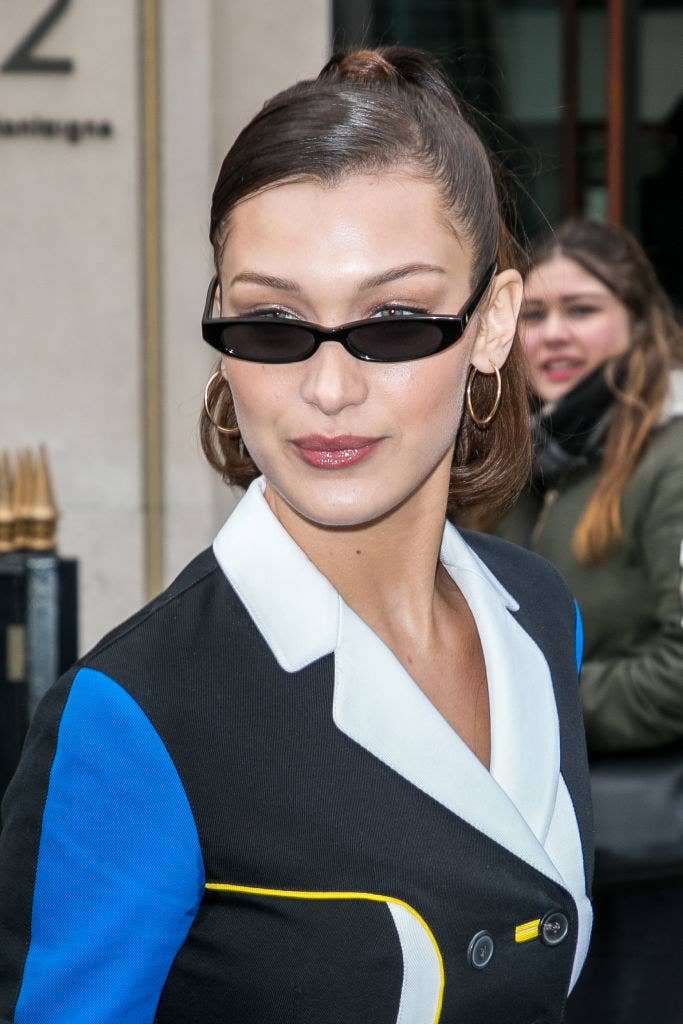
Can they get any smaller?
Whether you love them or hate them, "microshades" are going to be everywhere this summer...which raises an important question: are they even functional?
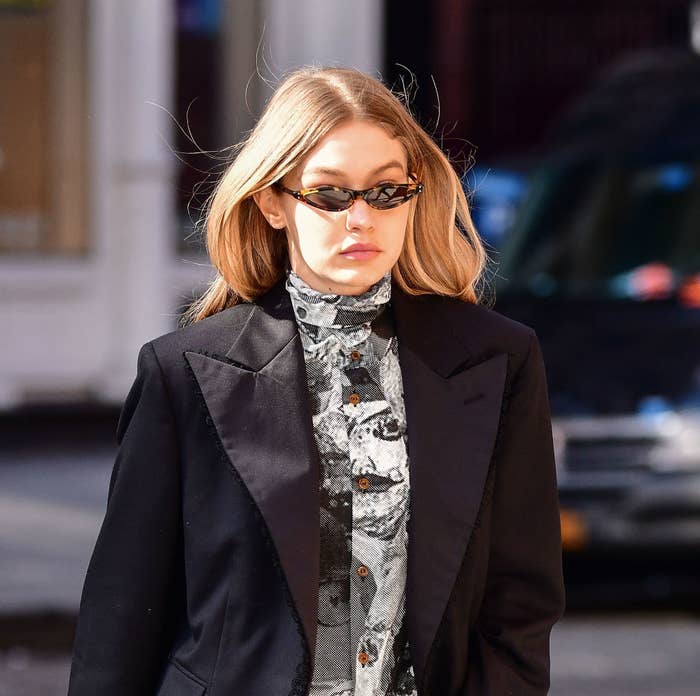
Tiny sunglasses have stirred up quite the style controversy. Some people hate the glasses because, well, they make you look like a character in The Matrix. Except if you're Rihanna, of course. Celebrities like Mindy Kaling and Anne Hathaway have taken to social media to mock the trend, which has become the butt of jokes on Twitter and Instagram.
And yet the glasses are still selling. You can find them for hundreds of dollars from high-end designers or under $10 on Amazon. It's clear that this trend is not going anywhere, and a lot of people will be rocking tiny shades this summer.
But let us not forget that sunglasses actually have a purpose: to protect our eyes from harmful UV radiation. As summer approaches and the days get longer and sunnier, it's becomes increasingly important to wear protective eyewear.
We spoke to Dr. Andrew Iwach, an expert ophthalmologist and clinical spokesperson for the American Academy of Ophthalmology to find out more about tiny sunglasses, UV exposure, and eye health.
Turns out, sunglasses with lenses that are one-third the size of regular ones won't do a good job of protecting your eyes, which is not ideal for summer.
"The diameter of the lenses is so small that it doesn't even cover the entire eye, so it makes sense that light will come in from around the glasses and hit the eyes," Iwach told BuzzFeed News. Even if it looks dark when you wear the glasses, light still hits the area around your eyes — especially if you wear the glasses on the bridge of your nose, which seems to be the trend. Why is this a problem?
Sunlight is a form of radiation and it can damage the DNA in your eyes or skin. Too much UV exposure is bad for you, no matter your eye or skin color. In the summer, the levels of UV radiation can be up to three times higher than they are in the winter. And UV rays can penetrate clouds, too.
"Under some particular settings the risk is even greater — for example, when you are at the beach or out on a reflective water source like a lake or a pool," Iwach said. So these are not the glasses you want to wear when spending long hours outside — although that's when most people probably are wearing them.
Tiny sunglasses have other disadvantages. "The eyes will get drier because the small lenses don't protect against the wind, so there's a comfort issue," Iwach said. Larger wraparound sunglasses can also keep debris, dust, and sand out of your eyes.
Intense UV rays can also burn your corneas if you don't have enough protection. Yes, you can get a sunburn on your eyeballs.
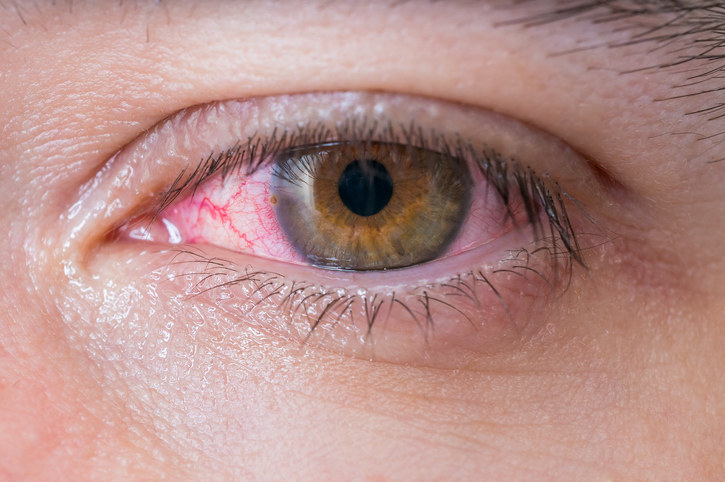
We wear sunscreen to prevent our skin from burning and we wear sunglasses to do the same for our eyes. If the eyes are exposed to intense UV rays for too long without protection or enough protection, this can result in a condition called photokeratitis, or an eye sunburn. The condition causes pain, blurred vision, headaches, and even cause temporary blindness, Iwach said. Photokeratitis usually goes away on its own, but it can be very uncomfortable in the meantime.
It doesn't take long — only 15 minutes — for UV exposure to accumulate and start to damage the eyes, but you probably won't feel it right away. "There's usually a delay, so you might feel great when you're at the beach out in the sun at the time of exposure then hours later you feel the symptoms and realize there is damage," Iwach said.
In the long term, UV exposure can increase the risk of vision problems and growths, including cancers, on or around the eyes.
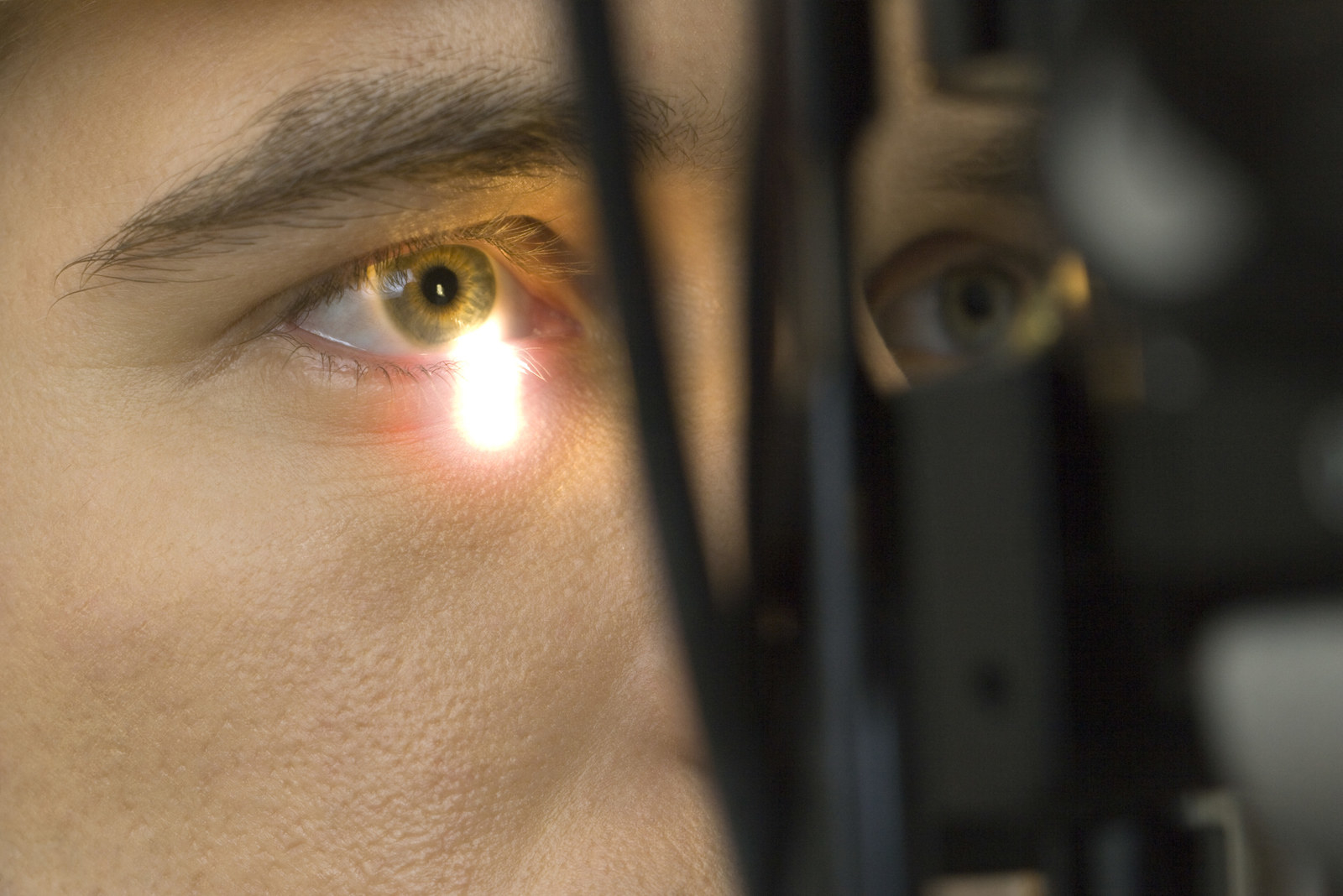
"Our bodies do not do well with UV radiation and it raises the risk potential long-term issues with [the] eye, particularly the retina," Iwach said. The retina, a thin tissue at the back of the eye, is particularly susceptible to long-term sun damage (macular degeneration), which can result in permanent vision loss. UV exposure can also increase the risk of cataracts, a clouding of the eye lens that affects vision.
It's also important to protect the skin around your eyes, because it is thin and delicate. Over time, UV radiation can cause skin cancers such as basal and squamous cell carcinomas to develop near the eye, said Iwach. In rare cases, it's thought that overexposure to UV radiation may also cause an eye melanoma, which is the most deadly form of skin cancer.
No one is immune to the effects of UV radiation, but certain groups have a higher risk of eye damage from UV rays. These include people who have light-colored blue or green eyes; people with a preexisting eye disease like retinal dystrophy or macular degeneration; people who have had cataract surgery; and those who take medication that makes their body more sensitive to light.
So it's important to wear sunglasses that actually protect your eyes, especially when you will be in the sun for a long period of time.
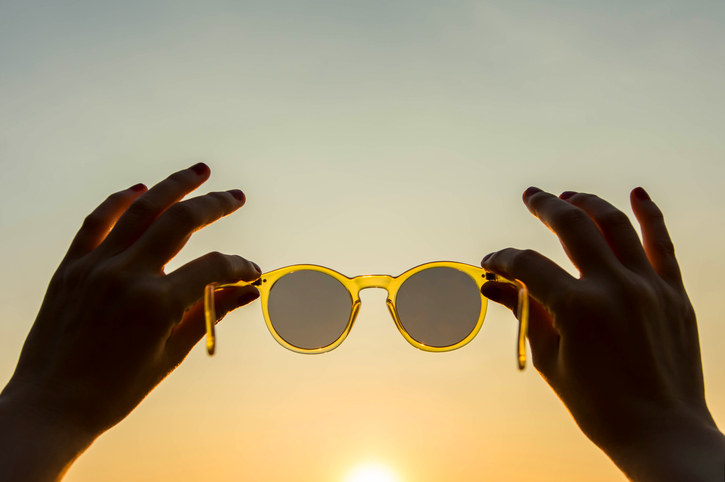
"The bottom line is: You want to be stylish but you also want to be safe," said Iwach. Here are some tips for choosing protective eyewear, according to Iwach and the AAO.
* Sunglasses should be labeled “UV400” or “100% UV protection,” which means they block 100% of UV-B and UV-A rays
* Pick lenses that cover your entire eye (the bigger, the better)
* Wraparound styles offer the most protection
* Do not choose sunglasses based on tint, because darker lenses do not necessarily offer more protection
* Opt for polarized sunglasses if you want to reduce glare, which is important while on the water or driving
* Buy your sunglasses from a reputable source
* Protective sunglasses do not have to be expensive — cheaper pairs can offer just as much protection as designer shades
You should wear sunglasses anytime you are outside or driving and the sun is out, but especially in high-risk situations where the consequences of not having adequate eye protection are higher. These include the beach, pool, boats, outdoor sporting events, rooftops, and even the ski slopes. You can also wear a wide-brimmed hat for extra sun protection.
As for the tiny sunglasses, maybe save them for events and evenings — they are more fashionable than functional.
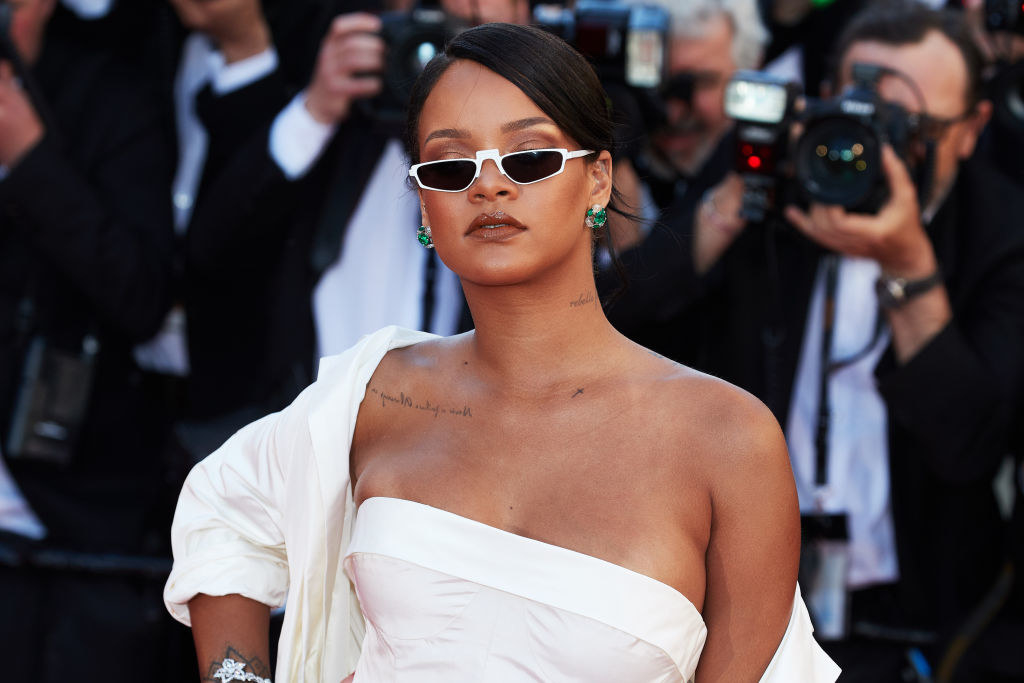
In a year or so, when tiny sunglasses are out of style, we'll all be laughing about this anyway.
I think we will regret this tiny sunglasses look
